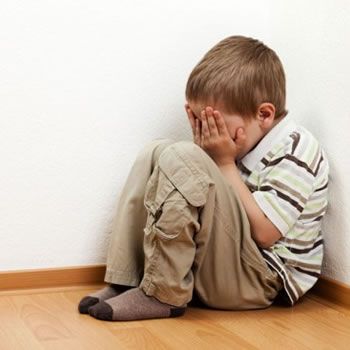
 Parenting doesn’t come with a handbook. It’s all on-the-job training. But the same is true for kids trying to grow into adults. No guidelines, just lots of unwritten rules that restrict who our children think they want to be. A guide toharmful behaviors can help you in your child’s development. Here is a parent’s guide to harmful behavior which is easy and helpful:
Parenting doesn’t come with a handbook. It’s all on-the-job training. But the same is true for kids trying to grow into adults. No guidelines, just lots of unwritten rules that restrict who our children think they want to be. A guide toharmful behaviors can help you in your child’s development. Here is a parent’s guide to harmful behavior which is easy and helpful:
1. Follow up
Setting rules and limits is a big part of a parent’s guide to harmful behaviors. At some point in their development, children will experiment with you to see just how serious you are about those boundaries. That’s why parents need to establish and clearly communicate the consequences of breaking those rules. If engaging in the bad behavior carries no consequences, your child has no reason to change it.
In fact, your child’s behavior may become worse if not appropriately disciplined. In another scenario, parents may tell their children they’ll do something for them or with them, and then don’t. Both lead to no follow ups to what you say. The firstdeals with discipline; the second is a broken promise. The outcome, however, is the same. When you don’t do what you told your child you would do, you become someone he or she can’t rely on. According to a parent’s guide to harmful behaviors you must not say what you are not going to do.
2. Set Limits
Children come into the world knowing precious little. They learn almost incidentally by observing the happenings around them and manipulating their surroundings through touch, sound, facial expression and movement. We set physical limits to keep our exploring munchkins from danger. And as they grow, a guide to harmful behaviors suggests that limits need to be revised.
It’s our job as parents to let our kids know which behaviors are acceptable and which aren’t. A parent’s guide to harmful behaviors says that limitation allows your child to experiment and learn important skills under safe conditions – until the time comes for you to expand those boundaries.
3. Be patient and polite
Constant yelling is a form of emotional abuse and can harm children’s mental health. When shouting is overused, kids just tune it out, but they often demonstrate negative behaviors, such as aggression and withdrawal. Guide to harmful behaviors suggests that you have to be patient toward you kids, yelling doesn’t always works. Be polite and understand their needs.
4. Treat Differently
In a parent’s guide to harmful behaviors treating each child differently is better than treating equally. Each child is different. While you shouldn’t make negative comparisons between your children, it’s also not the best policy to treat them exactly the same. Show each child respect for his or her individual strengths, abilities, needs and preferences. As a parent’s guide to harmful behaviors it is recommended that instead of making negative comparisons between your children, or between your child and his or her peers, identify your boy or girl’s unique strengths and qualities and cultivate an appreciation for them.
5. Listen!
Kids have problems that their parents often won’t be able to understand. Parents are older and have more experience but when the child comes to high school or college he/she is capable of solving their problems but need your support and trust. As a parent’s guide to harmful behaviors it is recommended listen carefully and try to resist your temptation to tell how to handle the situation your way. Listening is a much more effective approach to helping your child work through problems and make decisions.
Raising children is a tough business. As they develop and mature, kids’ needs, expectations and desires change. It’s hard to predict what will happen next. Recognize with the help of a guide to harmful behaviors when you need to make an adjustment in your behavior. And chances are good that your kids will forgive your occasional missteps, just as you forgive theirs.
Click HERE to read more from Fashion Central.

Be the first to comment